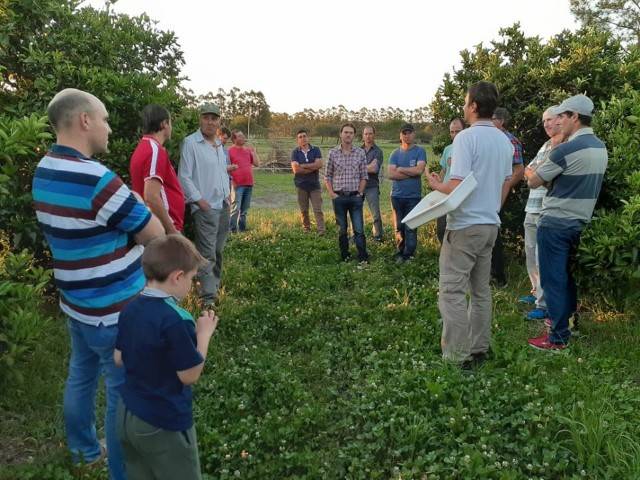From July 27 to 29, the XV FONTAGRO Annual Technical Monitoring Workshop was held, also called “FONTAGRO Knowledge Week 2020”, in which 15 ongoing projects and more than 100 organizations from 18 countries presented Project s evolution.

In this framework, Ing. Agr. Silvana Giancola from INTA Argentina Center for Research in Economics and Prospective Studies (CIEP), leader of the "Sustainable HLB vector control in family farming Project in Argentina, Uruguay, Paraguay and Bolivia", presented the progress, challenges and lessons learned since its launch in September from 2019 to date.
The initiative is co-financed by the Regional Fund for Agricultural Technology -FONTAGRO- which is a cooperation mechanism that encourages investment in innovation in the agri-food sector in Latin America and the Caribbean, and promotes regional public and private colaborative platforms.

The HLB Vector Control project is led by INTA / Fundación ArgenINTA (Argentina) as Executing Agency; They are Co-executing Organizations: INIA (Uruguay), Itapúa National University (UNI) / FundUNI (Paraguay), Autonomous Municipal Government of Bermejo (Bolivia) and Associated Organizations: SENASA and FEDERCITRUS of Argentina and UPEFRUY of Uruguay. 19 INTA s Research and extension agencies - with more than 95 technicians are involved in implementation.
The technological solution
Giancola explained “we are working on the local adaptation of the integrated pest management (IPM) technology in demonstration lots (LD) located in family farming establishments (FF) -elected in a participatory manner together with local actors- with a focus on the HLB vector (Diaphorina citri) cntrol through monitoring practices, use of safe products that preserve the natural balance and use of natural enemies (Tamarixia radiata, chrysopids). In addition, she clarified that " monitoring allows activating an alert system for family growers and other actors, through a free access portal”.
Another component of the project is training of certified IPM monitors, family growers, professionals and operators, including rising social awareness workshops among communities.

Likewise, monitoring the impact of the implementation of the IPM in demonstration and control lots is included: evaluation regarding sustainability, effects on fruit quality and economic-financial analysis.

Giancola clarified “project promotes the collective management of innovation as an approach for scaling up IPM in family farming”.
Finally, Giancola added “after 10 months of implementation, important advances can already be shown, such as 16 demonstration lots of IPM with 16 conventional lots in family establishments, 141 monitoring activities took place, a massive release of Tamarixa radiata was carried out for the first time in a commercial establishment in the region, more than 500 citrus growers were trained, among other crucial achievements”.
More information:
Ing. Agr. Silvana Giancola giancola.silvana@inta.gob.ar
CIEP-INTA
Authors: Mariano Matías y Andrea Goldberg




